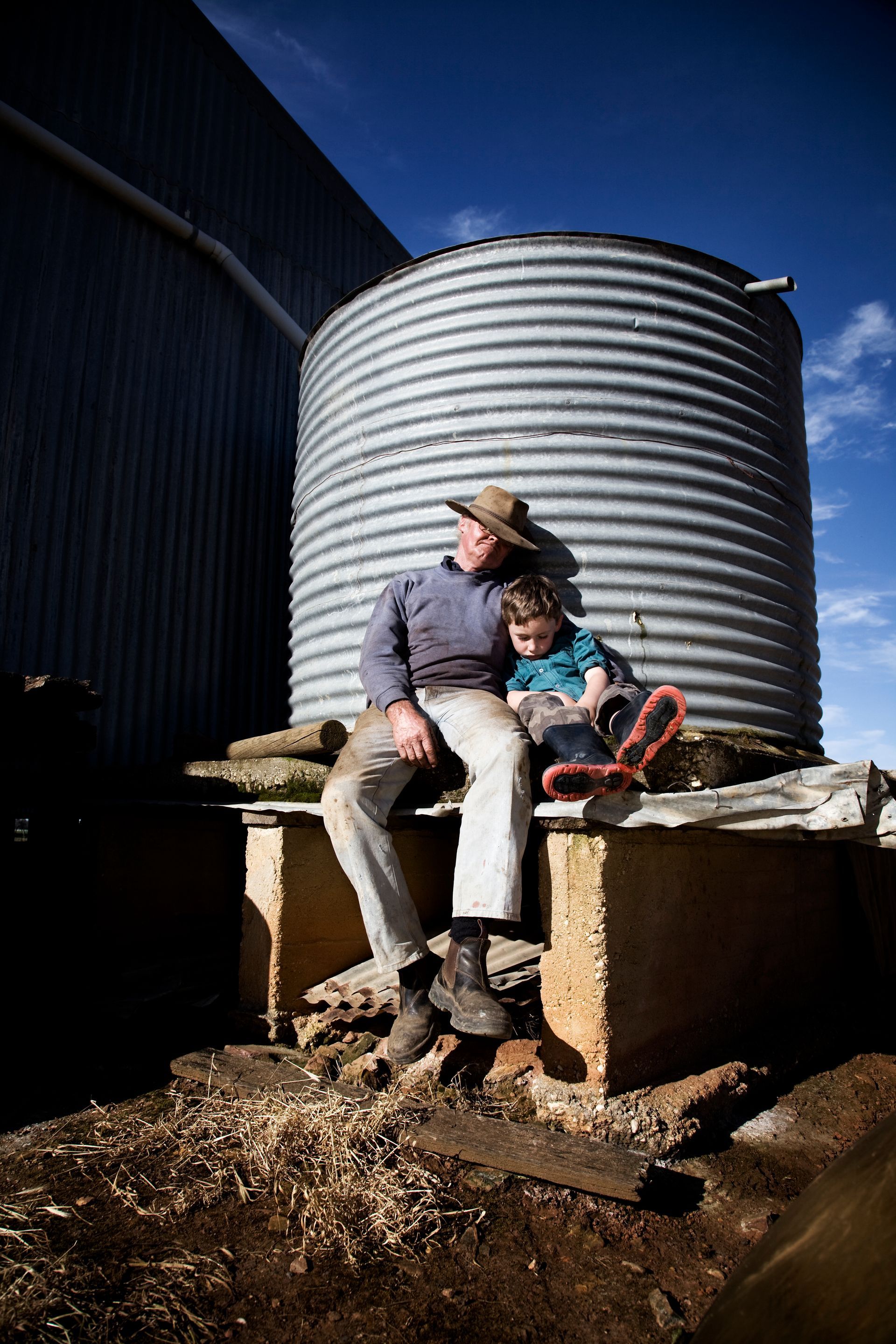1MG FlippingBooks
Kids on the farm: a force of nature
As the disconnect between urban and rural lives widens, so does the chasm in our understanding of where our food and fiber originate.

The crux of the problem is multifaceted: an aging agricultural workforce, a burgeoning urban population, and an onslaught of misinformation about farming practices – and these issues underline the urgent need for programs to engage students and teachers with the agriculture industry.
Without such programs, we risk an escalating disconnection from the agricultural world, potentially leading to a decline in individuals entering agri-careers as well as a diminished understanding of the origins of food and fibre and of agriculture's pivotal role in our lives and economy.
Peak body organisations recognise the need for kids to become involved in agriculture from as young an age as possible so that they come to understand the importance of agriculture to their everyday lives and to the nation’s prosperity.
Considering also that the agricultural workforce is ageing, we need young people with drive and passion to move into the industry to address that.
The key is explaining the huge diversity of careers available to those who want to work in agriculture. Opportunities exist for those who are interested in science, economics, information technology, engineering, design, management, marketing, journalism, agronomy, animal husbandry, finance, conservation, production, research, natural resource management, food services, education or training or policy – the list goes on. The agriculture sector is a highly innovative and technologically advanced industry.
Unfortunately, as agriculture knowledge in the broader community decreases, teachers lose the confidence to use this knowledge in their classroom teaching despite the existence of fantastic curriculum-aligned agriculture resources, exacerbating the problem.
Enabling students and teachers to take part in a range of activities and experiences, including on-farm or primary production worksite visits and hands-on curriculum aligned activities, is key. This real-life experience gives both cohorts a deeper understanding of where their food and fibre comes from and kindles a lasting appreciation for agriculture – and that’s exactly what the Kids To Farms program aims to cultivate.
AgForce School to Industry Partnership Program Manager Kellie Blinco says, ‘In the Kids to Farms program, primary students visit farms, agricultural businesses, and primary production worksites to learn about the agricultural industry using ag-tech focused learning modules which bring together the classroom and the farm, the students and the producer or production site. It celebrates the vibrant activities that bring the soil and soul of farming into the classroom and beyond.’
Teachers are consistently amazed at the transformative effect these programs have on students, noting their newfound excitement and comprehension of agriculture's relevance. Following the Kids To Farm program, one teacher remarked on the initiative a student showed in exploring different grains at home, a testament to the program's influence beyond the classroom.
For students in secondary school, activities need to focus more directly on the diversity of careers available in the agriculture sector and the pathways to those careers. Within the Kids To Farm program, activities and events such as Ag Inspirations (three-day intensive tour of agriculture industries in a region), Career Conversations (engagement with agriculture industry professionals in an informal setting) and Career Snapshots (agriculture industry professionals share a day in their life, career pathway and opportunities) provide hands-on, relevant experience and immersion in the agriculture industry. Such interventions not only enhance understanding and appreciation but also demystify the agricultural profession, showcasing its modern, technology-driven face.
Even students who decide not to pursue a career in food and fibre will benefit from the opportunity to develop a better understanding of and appreciation for the agriculture industry and its importance to their everyday lives.
Student participants are loving this approach. Year 10 student Chris Hoare said he now realises he has more options in agriculture then he thought and feels inspired to try more and find his passion.
“Coming from a small cattle property myself, I found it very interesting and informative how many jobs and careers the agricultural industry offers and how many paths that I as a Downlands Student can choose straight out of school,” Chris said.
“As we toured through Nurseries and Feedlots, I noticed that the archetype of an old bloke with a tractor and implements no longer represents the agriculture industry, which is now looking at more of a sustainable and robotic future.”
A combination of education, engagement, and experiential learning not only illuminates the path from paddock to plate but also sows the seeds for a more informed, connected, and sustainable future. As we contemplate the future, the importance of such educational endeavours cannot be overstated—for in nurturing a child's connection to the land, we cultivate the guardians of our food security, environmental stewardship, and economic resilience for generations to come.
















